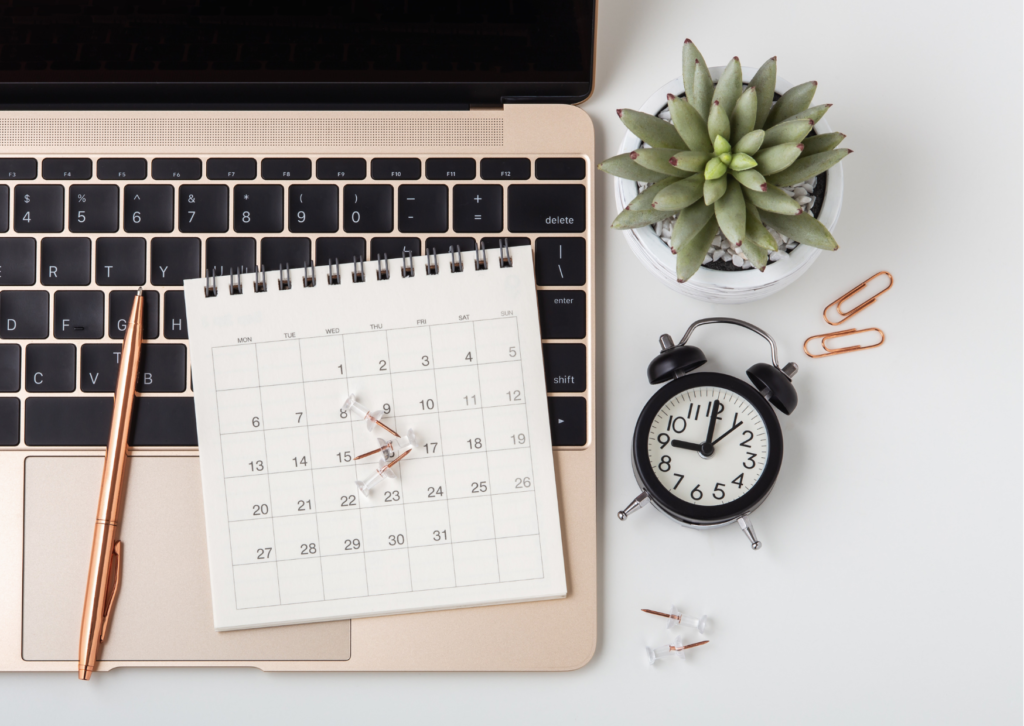Productivity is often seen as the result of a busy day, but the truth is very different. Constant effort and rushing through tasks might feel productive, but without good organization, it can lead to the opposite: wasted time and lack of motivation.
Improving your daily planning is the key to transforming your days and increasing your productivity in a lasting way.
Productivity is not about how much effort you give, but how intentionally you plan your time.
The first step to better daily planning is adopting the right mindset.Don’t fall into the trap of trying to do everything all the time. It’s not about how much you do, but how well you manage your time and priorities.
Effective planning starts with having a clear vision of what you want to achieve, both in the short and long term.
Once you’ve defined your vision, it’s important to break your tasks into clear, manageable steps.
=> This means sorting through the things you need to do. Sometimes we get overwhelmed by endless to-do lists, but smart planning means learning to tell the difference between what’s urgent and what’s truly important..
Start each day by reviewing what really needs to get done and what can wait. This will help you stay focused and put your energy where it matters most.
Another useful technique to improve your planning is to build arealistic schedule.Planning too much in one day is a common mistake and often leads to frustration.
Be honest about what you can actually do with the time you have. Prioritize tasks based on importance and deadlines, but also consider your own pace and energy levels.
Some moments in your day are better for demanding tasks, while others are better suited for lighter activities.

It’s also important to add routines to your planning. Routines bring stability and structure to your day, which is a key factor for being productive.
For example, set a specific time every morning to plan your day, or create regular breaks to recharge.
These habits will boost your long-term efficiency and help you stay focused.
Time management also means allowing space for the unexpected.Even the best plans can’t predict everything, so it’s important to leave some flexibility in your schedule. Don’t feel guilty if things don’t go as planned. Learn to adjust your priorities when needed, without losing sight of your long-term goals.
Another key to productivity is cutting down on distractions.Constant notifications, emails, and social media can be big time-wasters. When planning your tasks, set specific time slots for dealing with these distractions. This will help you stay focused on what really matters and stop you from jumping from one thing to another.

Finally, remember to regularly review how you organize your time.It’s not just about planning, but also about checking what’s working and what could be better. Take a few minutes at the end of each day or week to look at your progress, adjust your work methods, and fine-tune your schedule.
Improving your daily planning isn’t something that happens overnight. It’s a constant commitment to organizing yourself better.Each small adjustment can have a big impact on your long-term productivity. By taking the time to plan your days smartly, you’ll not only get more done, you’ll feel calmer and more fulfilled in your work.
Productivity isn’t about doing more, but about doing what truly matters, effectively and in line with your goals.When you take control of your schedule, you transform not just your work, but also the way you approach your professional life.



True growth happens where doing meets being.
— Amal H.
Founder of Mentor Roots | Author, Talent Scout, NLP & Positive Psychology Coach
🌿 Discover our coaching programs: www.mentor-roots.com
🔗 Follow my insights on LinkedIn & Instagram
